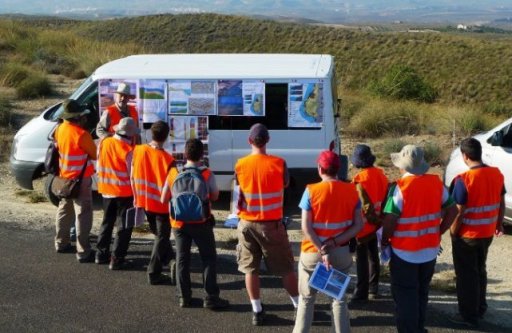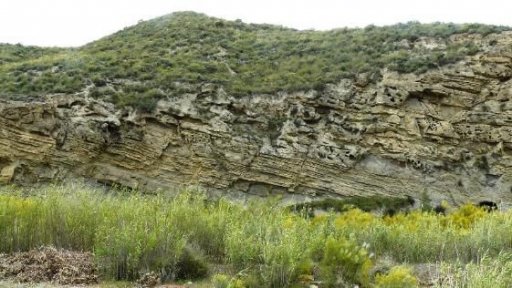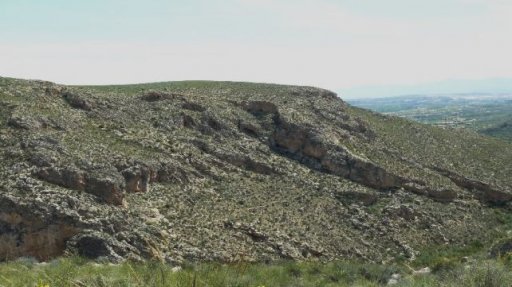Predictive Stratigraphy in the Field (Spain)
When Outstanding Outcrops Carry all the Concepts that are needed in E&P Projects
- Course Type
Field Course - Duration
5 days - Thematic
Geosciences - Location
- Country
Spain -
Satisfaction rate
Highlights:
- During this 5-day course, participants are trained in all the best practices for description and prediction of reservoirs in order to reduce E&P risk.
- This course alternates a review of a selection of outstanding easy-access outcrops with poster sessions on the field, in order to introduce the concepts of how field observations can be applied to the business.
- Practical exercises in the evenings will reinforce the applicability of the concepts to the daily life of geoscientists.
- Carbonates and clastic sedimentology, including deepwater settings based upon facies analysis and their stacking patterns, are the foundation of sequence analysis.
- Both autocyclicic and allocyclic controls are presented and discussed to highlight their impact on reservoir architecture, and the heterogeneity that can be predicted once “good geology” rules have been applied.
Objectives:
- To introduce the concepts of gravity processes, facies, their reservoir architecture and characteristics
- To present and apply the techniques and tools used in deepwater E&P projects
- To illustrate best practices using case studies.
Location
- The course is run in Andalucía, Southern Spain, offering a mix of fantastic outcrops along the coast and exposures in the desert.
- Meeting point is in Almeria Airport, easily connected to Madrid Barajas Int. Airport.
- Comfortable hotels in this area.
Who Shoud Attend?
- This course is mostly dedicated to young professionals and experienced geologists.
- Geophysicists and reservoirs modellers willing to sharpen their skills are also welcome but basic geological knowledge is recommended.
Physical Demands
- Very few up- and downhill. All outcrops are accessible by asphalt road and dirt roads. Reduced driving time.
- Sun and heat in desert-like conditions might be an issue, though largely compensated by the scenery and adequate clothing.
Program:
- Review of basic principles of stratigraphy
- Earth cycles and effect on climates, relative sea level and stratigraphic record and emphasis of development of deepwater geobodies
- Late Miocene carbonate depositional environments and facies associations. Ecological accommodation
- Interactions between depositional environments and diagenesis processes
- Stacking patterns and sequence analysis
- Significant stratigraphic surfaces
- Correlations of surfaces and sequences
- Prediction of thickness and facies changes of the main depositional systems
- Where to drill next and impact on drilling success (including exploration games)
- Case studies

Prerequisites
This course is mostly dedicated to young professionals and experienced geologists.
Geophysicists and reservoirs modellers willing to sharpen their skills are also welcome but basic geological knowledge is recommended.
Lecturers
-
 Dr. GÉRARD J.Predictive stratigraphy consultant, 1957, French, more than 35 years of experience in the industry. He served as a clastic sedimentology and sequence stratigraphy advisor with Repsol from 2006 to 2016, supplying internal expertise to exploration and production projects run in both Madrid and affiliates. After studying geology at the Université de Caen in France, he joined the industry in 1981, starting as a seismic surveyor in South Yemen and Gabon with C.G.G. before processing and interpreting seismic data in Massy (France). In 1985, he worked as an exploration geophysicist with Fina Exploration Norway in Stavanger. In 1989, he joined Elf in Paris, in the basin study group. His transfer to their scientific and technical centre in Pau brought him much closer to rocks. Since the early 90's he has described quite a mileage of cores and has dedicated attention and time to trace fossils and ichnofabrics.
Dr. GÉRARD J.Predictive stratigraphy consultant, 1957, French, more than 35 years of experience in the industry. He served as a clastic sedimentology and sequence stratigraphy advisor with Repsol from 2006 to 2016, supplying internal expertise to exploration and production projects run in both Madrid and affiliates. After studying geology at the Université de Caen in France, he joined the industry in 1981, starting as a seismic surveyor in South Yemen and Gabon with C.G.G. before processing and interpreting seismic data in Massy (France). In 1985, he worked as an exploration geophysicist with Fina Exploration Norway in Stavanger. In 1989, he joined Elf in Paris, in the basin study group. His transfer to their scientific and technical centre in Pau brought him much closer to rocks. Since the early 90's he has described quite a mileage of cores and has dedicated attention and time to trace fossils and ichnofabrics. -
 Dr. ESTEBAN M.Carbonate expertMateu has a wide E&P experience (43 years) covering most carbonate basins from the Precambrian to the present. His technical publications have been internationally recognized with over 3,000 citations. He was an AAPG Distinguished Lecturer and received the AAPG Citation of Excellence and Special Commendation Award. Mateu was based in Madrid as External Advisor in Carbonate Geology with Repsol. As the founder of Carbonates International Iberia S.L. based in Mallorca, he was involved in consultation with Shell, NorskHydro, Repsol, PDO, Enron, Petronas, Petrobras, Apache, etc. Before, he was Staff Research Scientist with AMOCO Production Co., based in Tulsa (Ok), leading research on karst and unconformity related reservoirs. He was Fullbright Scholar at the University of Miami with Dr. Ginsburg, and Visiting Scientist at the Universities of Wisconsin and Liverpool.
Dr. ESTEBAN M.Carbonate expertMateu has a wide E&P experience (43 years) covering most carbonate basins from the Precambrian to the present. His technical publications have been internationally recognized with over 3,000 citations. He was an AAPG Distinguished Lecturer and received the AAPG Citation of Excellence and Special Commendation Award. Mateu was based in Madrid as External Advisor in Carbonate Geology with Repsol. As the founder of Carbonates International Iberia S.L. based in Mallorca, he was involved in consultation with Shell, NorskHydro, Repsol, PDO, Enron, Petronas, Petrobras, Apache, etc. Before, he was Staff Research Scientist with AMOCO Production Co., based in Tulsa (Ok), leading research on karst and unconformity related reservoirs. He was Fullbright Scholar at the University of Miami with Dr. Ginsburg, and Visiting Scientist at the Universities of Wisconsin and Liverpool.


